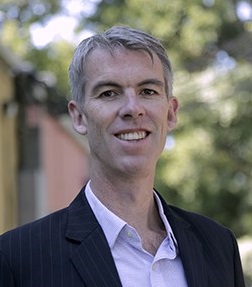- Behaviour
Defeating Rumination
CCL's Nick Petrie on how to reduce stress and build resilience
An insight from Nick Petrie at the Center for Creative Leadership (CCL):
While recognizing stress as a major problem in the workplace, many people assume that there is no escape from such stress. The demands of most jobs are going to create stress — such is the nature of work.
This assumption is wrong, however, and the core reason is the failure to distinguish between ‘pressure’ and ‘stress’.
Pressure results from external events, such as, for example, a failed project or a looming deadline. Pressure is, indeed, inevitable, and there is little we can do about it.
Stress, in contrast, emerges not from an event — past or future — but from our reaction to the event.
University of York professor Derek Roger has been researching stress for 30 years — 15 of those years in collaboration with myself. This research has identified why reactions to pressure produce stress. The culprit is rumination — the tendency to think over and over about something that has happened in the past or might happen in the future. We torture ourselves with never-ending thoughts of regret — “I should have done this,” — or negative conjectures — “What if this happens?”
It is important to differentiate between rumination and reflection. Rumination is a negative action focusing on past regrets and anxieties about the future. Reflection is a positive action focusing on reviewing the past and planning for the future. Reflection is important, since without reviewing the past and planning for the future, we have little chance of moving forward without making or repeating mistakes.
Unfortunately, we may believe that we are reflecting and planning constructively, when in fact, we are stuck in nonproductive rumination loops, constantly replaying the past or imagining the worst for the future.
Derek Roger and I have identified four steps that help break the grip of rumination and thus build resilience to pressure.
Wake up. The first step to building resilience, therefore, is to wake up and focus on the present — what is happening now, not what happened in the past or what may happen in the future. Awareness is vital: Be aware of when you are starting to sink into the morass of rumination and pull yourself out immediately.
Control your attention. One of the most disheartening emotions is the loss of control. Most people don’t realize, however, that they have control over their attention. Once you have woken up, use this control. Consciously decide where you want to focus your attention, then learn to hold your attention where you’ve directed it.
Detach. The reason we sometimes get tangled up in regrets and anxieties is that we have lost perspective. Detachment is the ability to maintain perspective and keep things in their proper proportions.
Let go. You cannot block out your thoughts, but you can recognize that they are just thoughts — thoughts that crave your attention but that you must ignore. Not feeding your thoughts with attention is the art of letting go.
These four steps are not easy. They take practice and conscious effort. Petrie and Roger offer some tactics to help achieve these steps:
Interrupt a pattern. A sudden physical action — clapping your hands once, stretching in your chair — can help bring you back into the present.
Re-focus on what you can control. Deliberately focus your thoughts on things that you can control, thus elbowing the rumination on what you can’t control out of your brain.
Get above it all. One analogy that we use is that of a loft above a large room. From this loft, you watch a flood enter the front door and go out the back door. This is the mindset to defeat rumination. Let the thoughts you can do nothing about in the front door (trying to block them out won’t work) and watch them from your mental loft go through the house and out the back door.
Life is full of problems and pressures, and they can be addressed productively. But if you are sitting immobile and lost in rumination, then you are simply adding to your stress and nothing more. Time to let go.
Nick Petrie is a Senior Faculty member with the Center for Creative Leadership’s Colorado Springs campus. He is a lead faculty for the Leadership Development Program and the legal sector. Nick is responsible for the design and delivery of individual, team, and organizational custom and open enrollment solutions.
A top-ranked, global provider of leadership development. By leveraging the power of leadership to drive results that matter most to clients, CCL transforms individual leaders, teams, organizations and society.
ARTICLES YOU MIGHT LIKE
BOOK REVIEW
An authoritative antidote to executive stress, overwhelm, and burnout
DEVELOPING LEADERS QUARTERLY MAGAZINE AND WEEKLY BRIEFING EMAILS


































